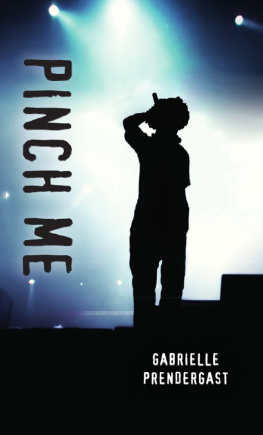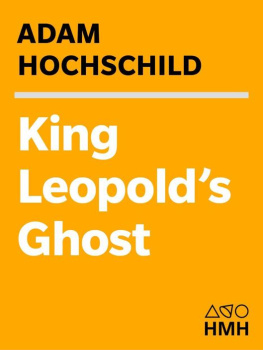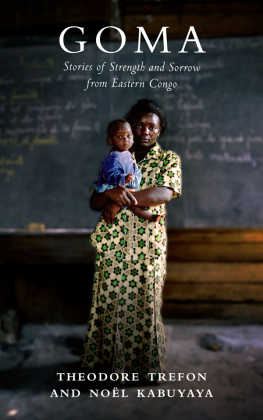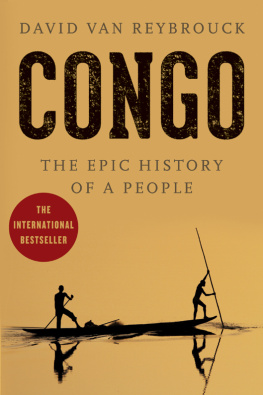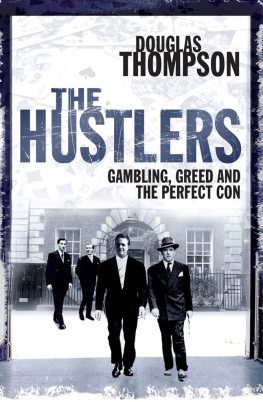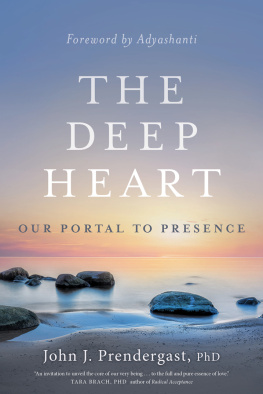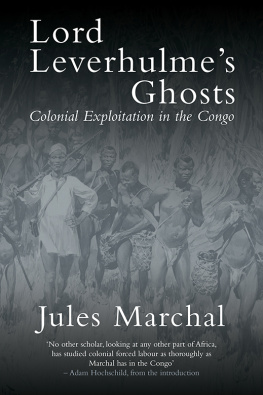John Prendergast - Congo Stories: Battling Five Centuries of Exploitation and Greed
Here you can read online John Prendergast - Congo Stories: Battling Five Centuries of Exploitation and Greed full text of the book (entire story) in english for free. Download pdf and epub, get meaning, cover and reviews about this ebook. year: 2018, publisher: Grand Central Publishing, genre: Politics. Description of the work, (preface) as well as reviews are available. Best literature library LitArk.com created for fans of good reading and offers a wide selection of genres:
Romance novel
Science fiction
Adventure
Detective
Science
History
Home and family
Prose
Art
Politics
Computer
Non-fiction
Religion
Business
Children
Humor
Choose a favorite category and find really read worthwhile books. Enjoy immersion in the world of imagination, feel the emotions of the characters or learn something new for yourself, make an fascinating discovery.

- Book:Congo Stories: Battling Five Centuries of Exploitation and Greed
- Author:
- Publisher:Grand Central Publishing
- Genre:
- Year:2018
- Rating:4 / 5
- Favourites:Add to favourites
- Your mark:
- 80
- 1
- 2
- 3
- 4
- 5
Congo Stories: Battling Five Centuries of Exploitation and Greed: summary, description and annotation
We offer to read an annotation, description, summary or preface (depends on what the author of the book "Congo Stories: Battling Five Centuries of Exploitation and Greed" wrote himself). If you haven't found the necessary information about the book — write in the comments, we will try to find it.
Congo Stories: Battling Five Centuries of Exploitation and Greed — read online for free the complete book (whole text) full work
Below is the text of the book, divided by pages. System saving the place of the last page read, allows you to conveniently read the book "Congo Stories: Battling Five Centuries of Exploitation and Greed" online for free, without having to search again every time where you left off. Put a bookmark, and you can go to the page where you finished reading at any time.
Font size:
Interval:
Bookmark:
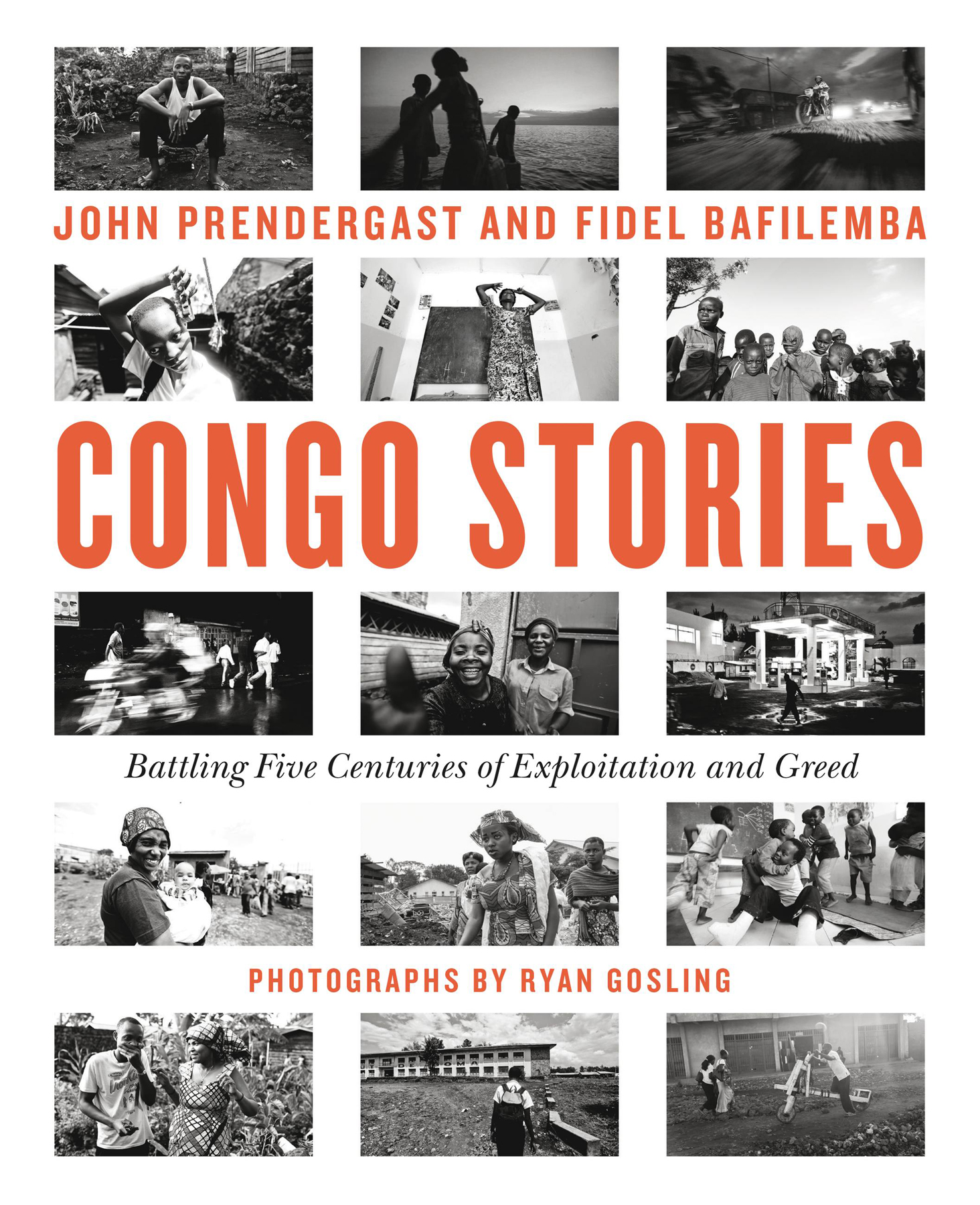
To receive special offers, bonus content, and news about ourlatest ebooks and apps, sign up for our newsletters.
Sign Up
Or visit us at hachettebookgroup.com/newsletters
Copyright 2018 by John Prendergast and Fidel Bafilemba
Foreword copyright 2018 by Soraya Aziz Souleymane
Postscript copyright 2018 by Dave Eggers
Afterword copyright 2018 by Chouchou Namegabe
Illustrations copyright 2018 by Sam Ilus
Photographs copyright 2018 by Ryan Gosling
Cover design by Faceout Studio
Cover art copyright 2018 by Ryan Gosling
Cover copyright 2018 by Hachette Book Group, Inc.
Hachette Book Group supports the right to free expression and the value of copyright. The purpose of copyright is to encourage writers and artists to produce the creative works that enrich our culture.
The scanning, uploading, and distribution of this book without permission is a theft of the authors intellectual property. If you would like permission to use material from the book (other than for review purposes), please contact permissions@hbgusa.com. Thank you for your support of the authors rights.
Grand Central Publishing
Hachette Book Group
1290 Avenue of the Americas, New York, NY 10104
grandcentralpublishing.com
twitter.com/grandcentralpub
First Edition: December 2018
Grand Central Publishing is a division of Hachette Book Group, Inc. The Grand Central Publishing name and logo is a trademark of Hachette Book Group, Inc.
The website www.congostories.org and the other websites referred to in this book are independent entities not affiliated with the Hachette Book Group.
The publisher is not responsible for websites (or their content) that are not owned by the publisher.
Map: The Congo in 1990 from King Leopolds Ghost by Adam Hochschild. Copyright 1998 by Adam Hochschild. Reprinted by permission of Houghton Mifflin Harcourt Publishing Company. All rights reserved.
Print book interior design by Faceout Studio, Paul Nielsen
Library of Congress Cataloging-in-Publication Data
Names: Prendergast, John, author. | Bafilemba, Fidel, author. | Souleymane, Soraya Aziz, writer of foreword. | Eggers, Dave, writer of postface. | Namegabe, Chouchou, writer of afterword. | Ilus, Sam, illustrator. | Gosling, Ryan, photographer.
Title: Congo stories : battling five centuries of exploitation and greed / text by John Prendergast and Fidel Bafilemba ; foreword by Soraya Aziz Souleymane ; postscript by Dave Eggers ; afterword by Chouchou Namegabe ; illustrations by Sam Ilus ; photographs by Ryan Gosling.
Description: First edition. | New York, NY : Grand Central Publishing, a division of Hachette Book Group, 2018.
Identifiers: LCCN 2018021726| ISBN 9781455584642 (hardcover) | ISBN 9781549194788 (audio download) | ISBN 9781455584611 (ebook)
Subjects: LCSH: Congo (Democratic Republic)History. | Congo (Democratic Republic)Politics and government. | Congo (Democratic Republic)Economic conditions1960- | Resource curseCongo (Democratic Republic) | Mines and mineral resourcesPolitical aspectsCongo (Democratic Republic)
Classification: LCC DT658 .P74 2018 | DDC 967.5103dc23 LC record available at https://lccn.loc.gov/2018021726
ISBN: 978-1-4555-8464-2 (hardcover), 978-1-4555-8461-1 (ebook)
E3-20181116-JV-NF-ORI
To be hopeful in bad times is not just foolishly romantic.
It is based on the fact that human history is a history not only of cruelty,
but also of compassion, sacrifice, courage, kindness.
What we choose to emphasize in this complex history will determine our lives.
If we see only the worst, it destroys our capacity to do something.
If we remember those times and placesand there are so manywhere people
have behaved magnificently, this gives us the energy to act, and at
least the possibility of sending this spinning top of a world in a different direction. And if we do act,
in however small a way, we dont have to wait for
some grand utopian future. The future is an infinite succession of presents,
and to live now as we think human beings should live,
in defiance of all that is bad around us, is itself a marvelous victory.
HOWARD ZINN
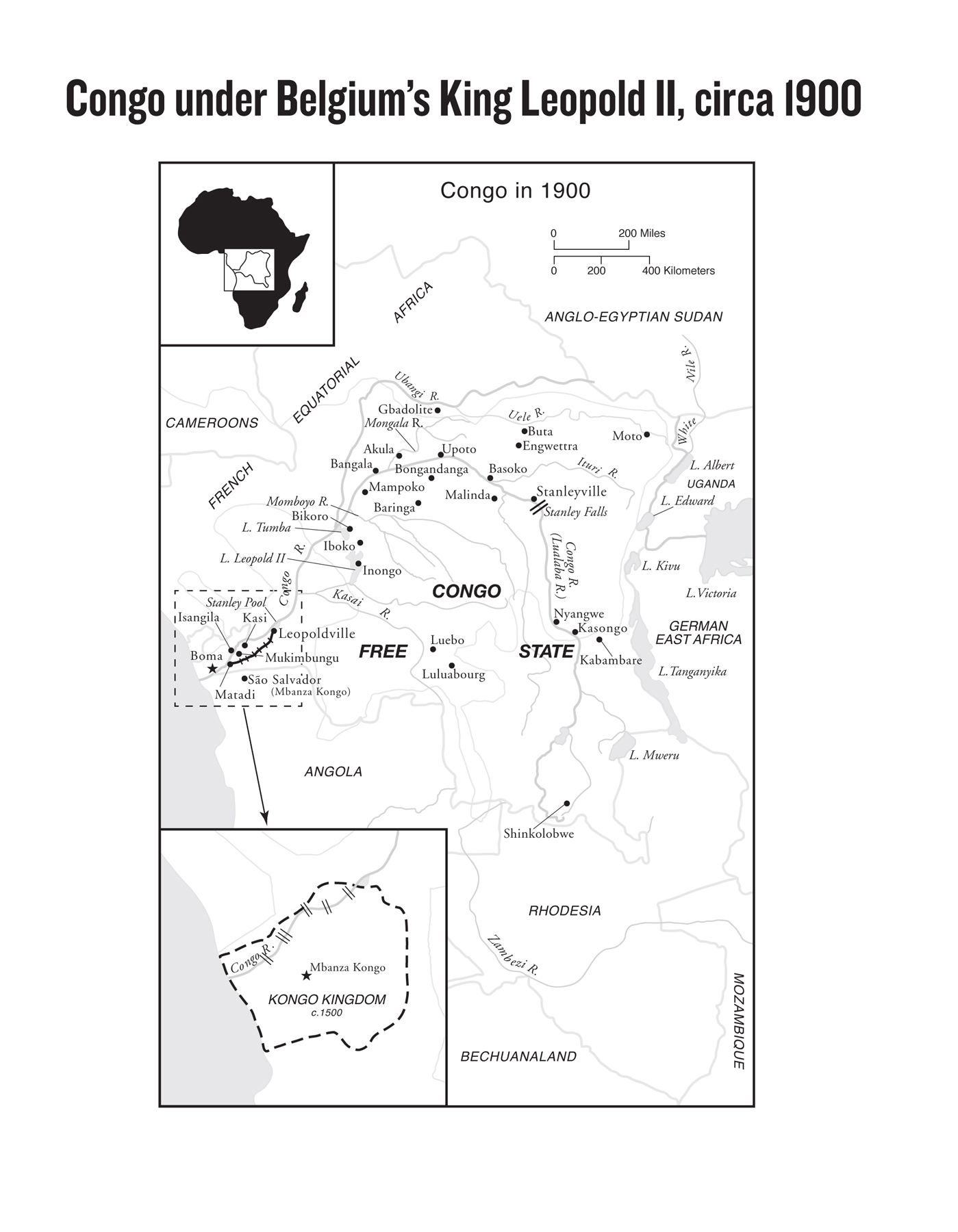
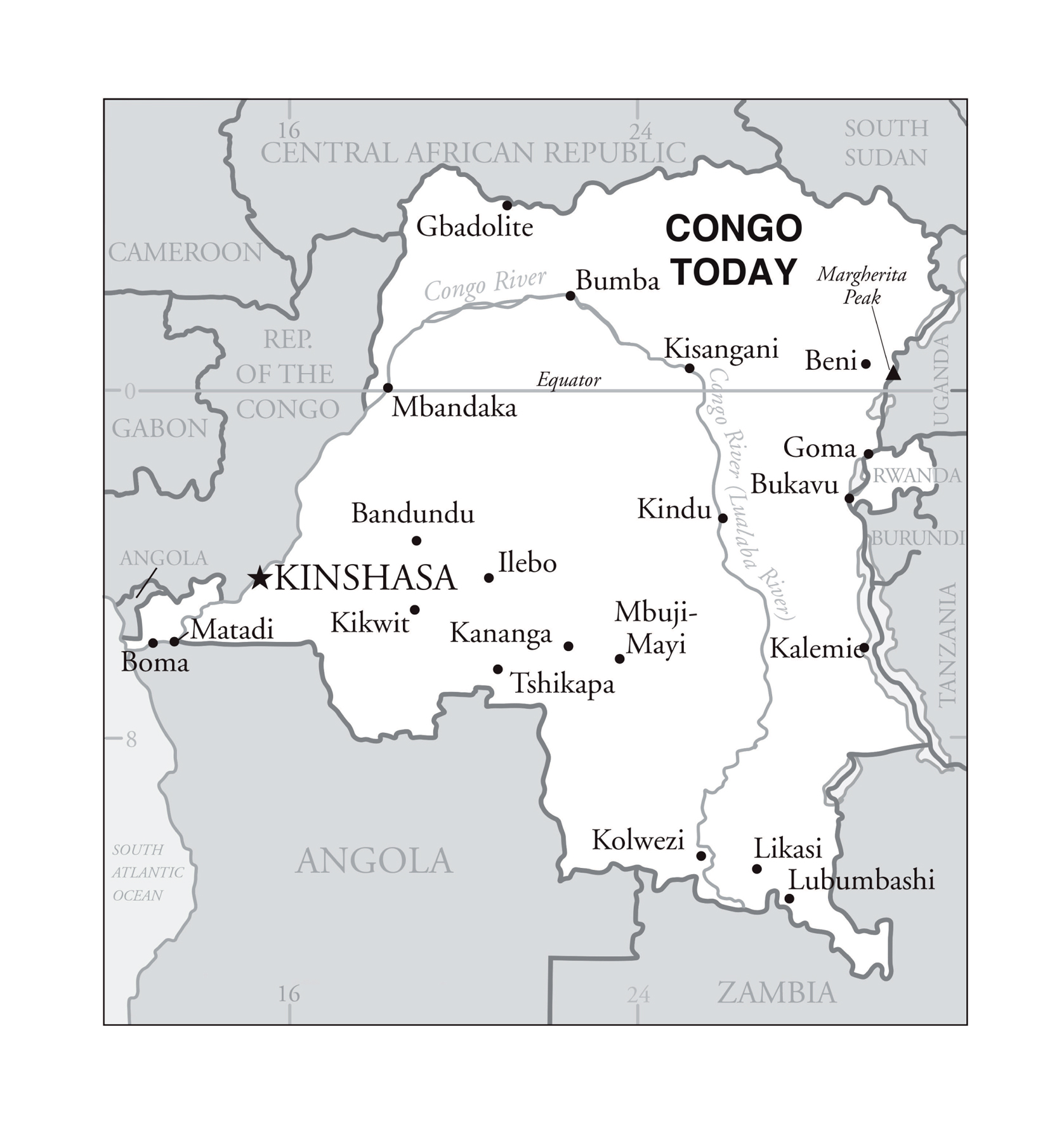
When I was asked to write a foreword for a book about the Democratic Republic of the Congo (hereafter Congo), I was very excited because I knew it would have a lot to do with natural resources, my field of expertise. To me, it was about time that a book with this potential audience would give an echo to the Congolese people talking about their struggle. Anyone writing about the conflicts in Congo knows Fidel and his passion for our country. That is why this book doesnt come as a surprise. I became acquainted with his work in 2009, when I started pointing out the connection between natural resources exploitation and the violent conflicts that were (and still are) devastating my country. As for John, I met him in Washington, DC, at a Senate hearing in 2011. John has been working on raising awareness on African conflicts for many years.
When I talk about Congo in the United States, most people first just want to know where the country is located. In Europe, however, people know well where Congo is. This is probably because of the colonial past linking Europe and Africa. You see, colonization was not just about bringing religion and civilization to the barbaric indigenous people of Africa. In Congo, colonization was about controlling and exploiting the strategic natural resources of a country that could not defend itself from these outside forces. To some extent, especially for ordinary Congolese people who are deeply impacted by the violent exploitation of our natural resources, this is still the case.
For five centuries, Congos institutions and infrastructure have been designed to strip the country of its natural resources. When I say natural resources, I mean human beings through the slave trade as well as timber, precious metals and stones, wildlife, and recently oil. Congo has a very poor road network, but all sites of natural resource exploitation are accessible via road and connected to the countrys rivers as well as to the Atlantic or Indian Oceans in order to facilitate exporting these resources. After the Belgian colonial period ended, Congo, like most African countries, went through a brutal dictatorship and the plundering mentality continued, this time with the complicity of some of Congos leading politicians as well as local and international businessmen.
Congo is a vast country (larger than Europe and about a quarter the size of the United States) endowed with many natural resources. In 2000 the United Nations estimated its mining potential to be upward of $24 trillion. But besides mining, Congo has the worlds second-largest equatorial forest providing oxygen to the world, the second-largest river in Africa, which could potentially provide electricity to the whole African continent, and a wide range of bird and mammal species endemic to the Congo Basin or Albertine Rift.
This abundance of wealth has made Congo a net creditor to the rest of the world. Many countries from all over the world have benefited from Congos natural resources even while the Congolese people rank among the poorest in the world, with more than 80 percent of Congolese earning under $500 per year. Every person or network of people ruling Congo since 1885 has done so with the aim of enriching themselves (with the exception of Joseph Kasa-Vubu and Patrice Lumumba, who were respectively the first Congolese presidentfrom 1960 to 1965and the first prime minister, for three months before the latter was assassinated in 1961). The plundering of Congo has been engineered and maintained to benefit a few people for more than five hundred years, and that is what this book is about.
Font size:
Interval:
Bookmark:
Similar books «Congo Stories: Battling Five Centuries of Exploitation and Greed»
Look at similar books to Congo Stories: Battling Five Centuries of Exploitation and Greed. We have selected literature similar in name and meaning in the hope of providing readers with more options to find new, interesting, not yet read works.
Discussion, reviews of the book Congo Stories: Battling Five Centuries of Exploitation and Greed and just readers' own opinions. Leave your comments, write what you think about the work, its meaning or the main characters. Specify what exactly you liked and what you didn't like, and why you think so.

